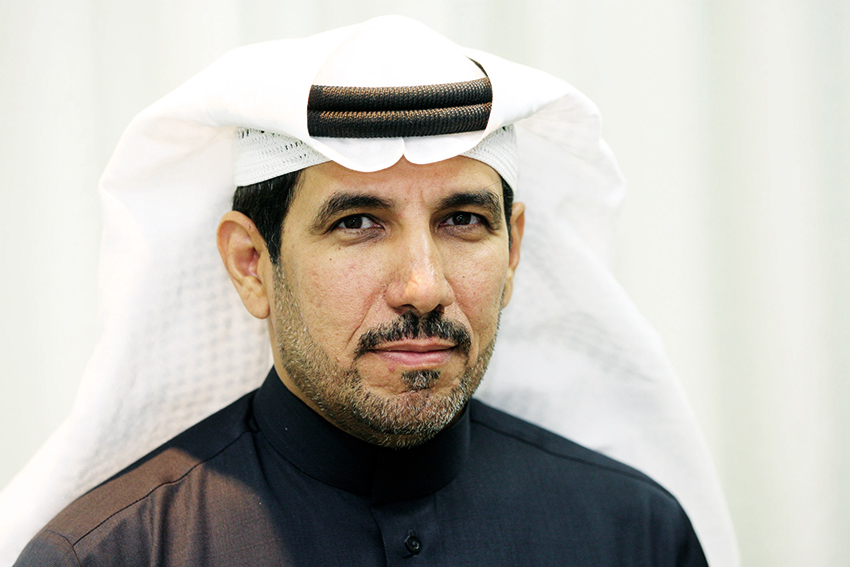Healthcare services, medical equipment and pharmaceuticals are increasingly in demand as population growth and lifestyle changes put pressure on supplies

Rising demand for essential healthcare services, medical equipment and pharmaceuticals, as the kingdom’s population growth, lifestyle changes and demographic shifts put increasing pressure on its current infrastructure, mean opportunities for private sector participation are in a healthy state.
Saudi Arabia’s population, currently an estimated 28.4 million people and the largest in the GCC, is experiencing annual growth of 2.7 per cent and shows no signs of slowing down.
By 2025, forecasts suggest they will number 35.4 million and – to cite just one complication – not all will be living in the big cities or on the edge of the Red Sea or Persian Gulf, but scattered over nearly a million square miles of desert.
This imposes additional strain on an overstretched public health system already being called on to absorb a demographic bulge created by a large generation of young people who are going to be marrying and starting up a family in the near future, and Saudi families have a tendency of being large in number.
Then there is the impact of what public health officials refer to as lifestyle issues.
Expressed in numbers, it means that at least 30 per cent of Saudis are classified as overweight, around 22 per cent are habitual smokers, and some 17 per cent suffer from diabetes.
Cardiovascular and kidney disease are becoming increasingly common as the number of Saudi residents aged 45 and over grows steadily steeper on the charts and is expected to double by 2030.
Treatments for such behaviour-based ailments, among others, are therefore in high demand.
In 2014 the pharmaceuticals market in Saudi Arabia was estimated to be worth $7.3 billion (£4.75 billion), representing more than half of the whole GCC market.
Pharmaceutical sales in the GCC were $5.6 billion in 2010 and are forecast to grow in the range of 6-8 per cent (compound annual growth rate, CAGR) over the following decade to be in the range of $9.9 billion to $11.6 billion by 2020.
“In Saudi Arabia, the private sector contributed approximately $3.5 billion and comprises around 300 companies, with only about 12 to 15 having local industrial operations, covering just 25 per cent of market demand,” says Fahad bin Ibrahim Al Khalaf, CEO of Spimaco.
“So there are still a lot of opportunities for the pharmaceutical industry in the Saudi market.”
Spimaco was the country’s first and is its largest pharmaceutical and medical appliance manufacturing firm, having been in the business since 1986, when its innovative Al Qassim manufacturing plant began production of six high-demand items.
These days its sales force has nearly 200 products in their portfolio, a reputation for superior relations with regulatory bodies, and a customer base spanning the Middle East, North Africa and the Maghreb through strategic local partnerships.
“The fundamental drivers for pharmaceuticals are strong in MENA (Middle East and North Africa) and the region holds significant opportunities for Spimaco in generics and licensing patented drugs,” comments Mr Al Khalaf.
“The average forecasted growth is higher than in developed markets – this is due to growing populations, low yet fast growing expenditure on pharmaceuticals, and the sizeable occurrence of specific chronic diseases, e.g. obesity being three times higher than the global average and the kingdom’s place among top 10 countries worldwide in diabetes prevalence rates.”
Other factors have already begun to affect pre-existing paradigms and made it clear that the ways in which healthcare is paid for, managed and delivered to clients are going to undergo some major changes and spur higher demand for pharmaceuticals.
One will result from the gradual implementation of laws requiring mandatory health coverage for everyone living, working or visiting Saudi Arabia for any length of time, with no more than a few exceptions, such as for diplomatic staff and religious pilgrims.
Mandatory private health insurance has been on the table since 2005, when it was first made applicable to the relative handful of people entering the country on tourist or business visas.
Later, authorities gave some thought to making it applicable to all government employees, which proved technically unfeasible.
At the present time, there is talk of taking it one sector at a time, starting with education in 2017.
Obviously, insurers will have to provide this massive new pool of clients with a full range of facilities and treatment options.
Another development affecting Saudi Arabia’s healthcare sector include the June 2015 opening up of the Saudi Stock Exchange to foreign investment, and billions of dollars in capital flows from abroad seeking to home in on the more than 165 companies on the Tadawul All Share Index.
Spimaco is the only one in its sector with a Tadawul listing and Mr Al Khalaf says the new investment flow entering the market will be seen as a welcome development in his company’s boardroom.
“Apart from the liquidity, foreign capital flows will help improve corporate governance, on matters such as disclosures.
New liquidity would help us to aggressively expand into new markets. As a listed company with a long-established track record that counts for a good deal,” notes Mr Al Khalaf.
Spimaco’s capitalisation of SAR1.2 billion (£208 million) makes it one of the largest of the 14 industrial investment firms listed on the exchange, second in fact only to the Saudi Arabian Mining Company (Ma’aden), which stands at SAR11.68 billion, and ahead of the Abdullatif Industrial Investment Company at SAR812.5 million.
“Financially, Spimaco is in a very strong position and the outlook for the industry is very positive,” states Mr Al Khalaf, adding that specialist European companies could partner in a lucrative, expanding pharmaceuticals market in the kingdom and expand technical know-how and expertise in the sector.
0 COMMENTS